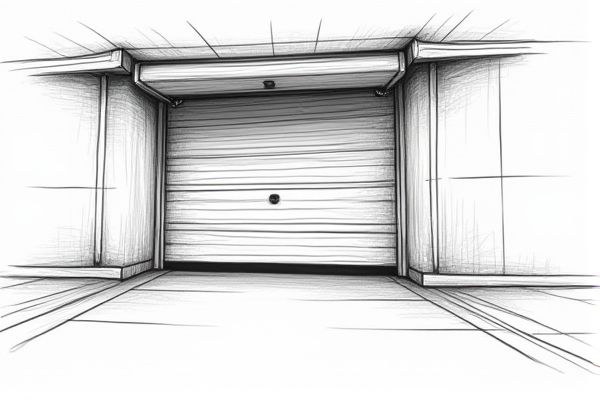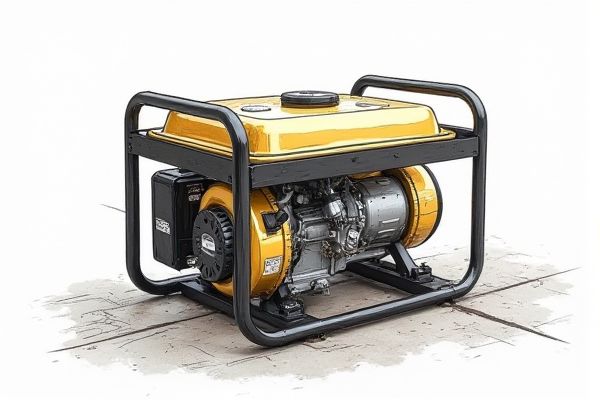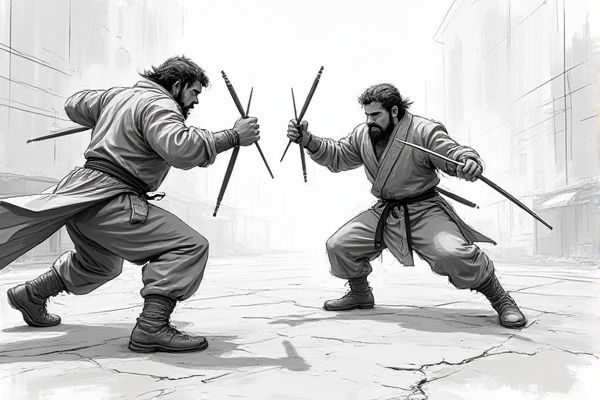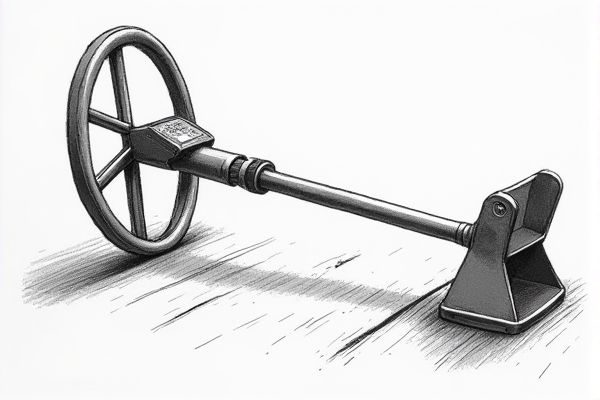When it comes to selecting the best tools for any project, choosing a reputable brand is crucial to ensure quality and durability. Whether you're a professional contractor or a DIY enthusiast, the right tools can make all the difference in achieving excellent results. From powerhouses in the tool industry known for innovation to classic brands trusted for their enduring reliability, there are several standout names that cater to diverse needs. To help guide your decision, we've compiled a list of the top brands that consistently deliver excellence in tools, each with its own unique strengths. Discover the leading brands in the tool industry below.

Illustration of tool
Best brands of tool in 2025
DeWalt
DeWalt is a leading brand in the power tools market, holding a 16% market share for units sold as of September 2023, with a 0.7 percentage point increase from the previous year. It is the only major brand to see an increase in unit share and also leads in brand consideration with a 22% share. DeWalt is part of Stanley Black & Decker, which boasts an 18.6% market share in the global power tool arena. Known for its durability and quality, DeWalt tools are widely utilized in construction, manufacturing, and residential projects. The brand's product lineup includes a diverse range of tools such as drills, saws, and grinders. For more insights on the most useful DeWalt tools, you can visit their detailed blog.
Makita
Makita, founded in 1915, is a renowned global brand in the electric power tool and equipment market, operating in over 40 countries. The company is a leader in innovation, with a strong focus on R&D, and its products are known for their power, performance, and durability. In the fiscal year ending March 31, 2024, power tools accounted for almost 54.5% of Makita's revenue, with the company generating around 741.4 billion Japanese yen in total revenue. Makita's 18V Lithium-Ion cordless tool line-up, introduced in 2005, has expanded to include over 100 tools, highlighting the company's commitment to technological advancement. Despite challenges in the North American market, Makita remains a trusted brand among professional users worldwide. For more information about Makita, visit their official website.
Bosch
Bosch is a leading global provider of power tools, holding a significant market share of 12.5% in the global power tool market. In 2021, Bosch Power Tools achieved record sales of 5.8 billion euros, with a 16% increase adjusted for currency effects, and in 2023, the division generated sales of 5.6 billion euros, primarily outside of Germany. Bosch's innovative strength and customer focus, particularly with brands like Bosch and Dremel, drive its success. The company employs roughly 19,500 associates in this segment and plans to launch over 100 new products in 2024. Bosch's commitment to innovation and digital solutions has been a key factor in its market position.
Milwaukee
Milwaukee Tool is a legendary brand in the tool industry, founded in 1924 and renowned for its innovative solutions and user-centric design. It holds a significant market share, with North America accounting for over 40% of its global revenue, and is projected to grow at a CAGR of 4.2% from 2023 to 2030. The brand is particularly strong in the construction sector, where its high-quality, long-lasting equipment is highly valued. Milwaukee Tool has also made significant strides in Europe and the Asia Pacific, with market shares of over 30% and 23%, respectively, and is expected to grow at CAGRs of 6.0% and 8.0% in these regions. Known for its lithium-ion battery technology and products like the M18™ and M12™ systems, Milwaukee Tool continues to innovate and expand its product lines. For more information, visit their official website.
Ryobi
Ryobi, owned by Techtronic Industries (TTI), has established itself as a leading brand in the outdoor power equipment and power tool market, holding a significant 20% market share in the US for the past two years. Known for its reliable and affordable tools, Ryobi's product line includes a wide range of corded and cordless tools, with the 18V ONE+ System featuring over 280 compatible products. In 2022, Ryobi's power tools alone comprised about 23% of the brand's total $4.3 billion in GMV sales. Ryobi has also seen impressive year-over-year gains, increasing its market share from 2.6% in June 2014 to 8.3% by the end of June 2021. The brand's strong performance is further highlighted by its dominance in key subcategories such as power tools, trimmers, edgers, and pressure washers.
Hitachi
Hitachi is a prominent player in the global power tool market, with its subsidiary Hitachi Koki holding a 5% market share. As the fifth-largest player, Hitachi Koki offers products under the Hitachi and Metabo brands, catering to both professional and consumer needs. The global power tool market, valued at $32.2 billion in 2022, is expected to reach $42.7 billion by 2030, driven by increasing demand from construction and automotive industries, as well as the growing popularity of DIY projects. Hitachi's tools are part of a highly fragmented market dominated by top vendors like Stanley Black & Decker, Robert Bosch, and Hilti. Hitachi's global presence and diverse product range contribute to its strong market position. For more information, click here.
Craftsman
The Craftsman brand, acquired by Stanley Black & Decker in a $900 million deal, remains a leading producer of tools, holding a 28.5 percent market share in the hand tools and accessories category and a 9 percent share in portable power tools as of 2016. Despite recent sales declines, Craftsman generates $1.9 billion in annual retail sales, with hand tools accounting for $475 million and power tools for $190 million. For further details about the Craftsman acquisition by Stanley Black & Decker, you can visit this source.
Black+Decker
Black+Decker, a renowned brand under Stanley Black & Decker, has been a leader in innovation and design since 1910, known for its high-quality products used in and around the home. The brand has evolved from a small machine shop in Baltimore, Maryland to a global manufacturing powerhouse with nearly 50 manufacturing facilities in America and over 100 worldwide. Black+Decker is credited with inventing the first portable electric drill with a pistol grip and trigger switch, and its products are trusted for their efficiency and reliability. As of Q3 2024, Stanley Black & Decker, the parent company, holds a significant market share of 27.34% in the Capital Goods sector. The brand continues to innovate, as seen with the launch of the cordless kitchen wand(tm), a versatile multi-tool designed for various home cooking applications.
Stanley
Stanley Black & Decker is a leading producer in the tool industry, holding more than 28% of the total revenue in the power tool market as of 2024. The company is known for its strong brand image and diversified product line, focusing on innovation and product development to maintain a competitive edge. In the Miscellaneous Manufacturing Industry, Stanley Black & Decker holds a significant market share of 38.60% as of Q3 2024. The company also dominates the U.S. garden hand tools market, alongside other major players like Fiskars and STIHL. Its commitment to sustainability and eco-friendly practices further enhances its market position. You can find more information about their market share here.
Ridgid
Ridgid, a brand under the Ridge Tool Company, is a renowned producer of high-quality tools, particularly targeting the plumbing, pipe fitting, construction, and HVAC trades. Founded in 1923 in North Ridgeville, Ohio, Ridgid has become a subsidiary of Emerson Electric since 1966. The brand is famous for its distinctive red pipe wrenches and manufactures over 300 different types of tools, including power tools and wet/dry vacs. Ridgid tools are highly regarded for their durability and performance, making them a favorite among professionals. The company's long history and commitment to quality have solidified its position in the market. For more information, visit their official website.
















Leave a Reply
Your email address will not be published.